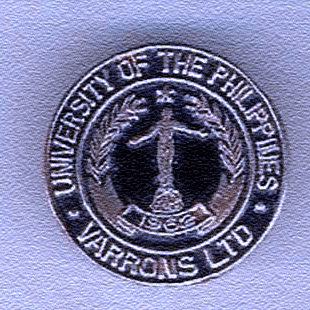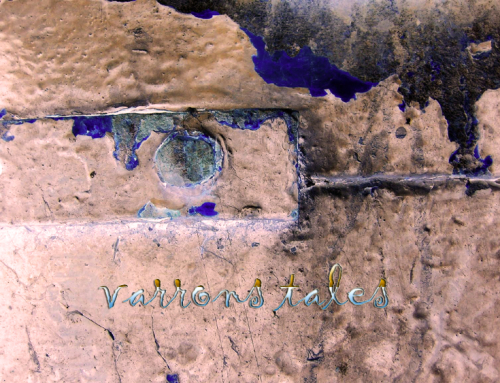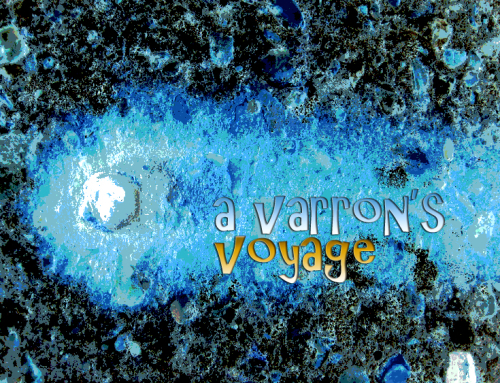When my uncle came back from vacation, I told myself that I need to move on. I then applied for a clerical position at the Bank of Tokyo’s international banking department. Three months later, I was promoted to the Letter of Credit Negotiator position. A year later, one of the bank’s customers, Loya International recruited me to be an assistant manager of their international department, handling logistics and letter of credit documentation and transactions. I stayed in the logistics side of the international business and achieved what most people would consider a lifetime achievement. I obtained a Federal Maritime Commission license for Ocean Freight forwarder and became President of the Los Angeles Cargo Association. I assumed various executive management positions in various companies for the next 12 years. I rose up to be a President of a U.S. based company and was able to establish offices in Manila and Cebu with 23 staff. When recession hit the USA in the late 1980s and early 1990s, I closed the company and went back to banking.
In 1992, I moved to Seattle, Washington, and joined again the Bank of Tokyo as an Assistant Vice President for Export Import Operation. Seven years later, a start-up bank, Pacifica Bank, recruited me as a Vice President to establish the International Trade Department from scratch. I took the challenge, like most Varrons would, and was able to make the department profitable in less than a year. I made several speaking engagements, lectures and seminar on international trade along the way. I also write articles on International Trade on one of the Filipino newspapers in Seattle, The Filipino American Bulletin. When Pacifica Bank was sold, seven years later, Bay Bank / Cowlitz Bank, a regional bank operating in the states of Washington and Oregon, recruited me to once again establish and beef up their international trade services. To date, my division contributes 20% of the total revenue of the bank. I report directly to the EVP & Chief Credit Administrator and to the President & CEO. I travel overseas and locally to maintain our correspondent banks ad and develop business relations with customers. To date, my 4 officers in various departments run the day-to-day operation, while I formulate policies, procedures and business direction of the bank’s international business. .
Can you describe your typical day being a banker?
My exact responsibilities at the bank cover the following areas: (1) branch operations, (2) international trade operations, (3) foreign exchange operations, (4) development and maintenance of foreign accounts and correspondents and (5) the remittance / wire transfer department. I have two offices, one in the branch and one in the international trade division. I spend more time in the international trade side simply because I have more staff there. I am normally in the office between 7:30am to 8:00am. This gives me at least 30 minutes before the staff starts to arrive. This is my time to open my emails and reply to those that are urgent and time-sensitive because the East Coast is already ready to go to lunch. At about 9:00 am, I look at reports that my staff provide me daily on production, accounting, deposit and trade operations. I visit each unit’s officers before 10:00am. When necessary, I call all the officers for a brief meeting and give directions and for me to receive updates on all outstanding issues and projects. Meetings are scheduled normally at about 10:00am to 12noon and sometimes continue through lunch. If no meetings are scheduled, I call on my officers for a short meeting and assign various projects or discuss progress on ongoing projects. I rarely call on customers anymore, but I make it a point to call on our biggest customers and our correspondent banks. During the day, issues pertaining to marketing, security, risk management, I.T., compliance and audit are received and reviewed. As the operation is in full swing, I get calls or visited by my officers for decision on how to handle special cases or ask for my signatures on various documents and operation exceptions. I normally go home at about 6:30 pm.
You are still an active member of the Society of Filipino Foresters in North America (SFFNA). Since you are in a different career area now, what is the compelling reason for you to do that?
Once a forester, always a forester. Forestry is my first profession. I grew up in a town, where arguably the largest integrated wood processing plant is located, i.e., Nasipit Lumber Company and the Philippine Wallboard Corporation. The Society of Filipino Foresters in North America was established in Seattle, Washington in 2004. Last May 24, 2008, I was elected President for 2009 and 2010. I have accepted the leadership challenge of this organization, not for glory or recognition but to make a difference and to somehow contribute to the enrichment of the forestry profession in the Philippines. We have plenty of forestry graduates in America that are willing to share and give back to our Alma Mater in terms of knowledge, experience and financial. It is my hope that I could start the effort in establishing a professorial chair or a scholarship program for the college. This gargantuan task will hope to ignite the interest of the other foresters to join the bandwagon. SFFNA is another infant organization that has no legal entity also and I plan to incorporate this also. Helping a Varron is akin to helping a forester.
You have been in the US for more than 20 years. Do you think you are living the American dream?
We all have our own definition of what an American dream is. American dream is relative. I believe that if one feels that he/she has accomplished more than what he/she thinks could have been, then he/she has lived the American dream. One could consider an achievement of a lifetime if he/she owns a beautiful and lavishly furnished estate with a couple of Mercedes Benz or Lexus in the garage, thus living the American dream. Consequently, a person who has nothing when he/she left the Philippines, would consider living an American dream just by owning a simple home, a decent car and a promising career. After 30 years in the USA, I have embraced the American culture and spirit as I presume to live the American way of life.
Who recruited you to become a member of the UP Varrons? From your perspective, does being a Varron make a difference in your life now?
[/fusion_builder_column]
A 100% Varron! The undergraduate members gave Mike an enthusiastic welcome when he visited UPLB in early 2008.
I was first introduced to our organization when I was still a freshman (1972). Vrod Dado Ocampo (Apollo Twelve ’70) was then the GV. The first question to me was, why did you choose the Varrons? My answer was, “After surveying all the organization, I feel the Varrons suits my character, ideals and belief.” I then remembered Vrod Tom Reyes (The Bastard ’71), asking me, “You are still a freshman and you have already taken surveying?” I got cold feet and did not attend the next meeting and dropped out. I could have been a member of the Flood Victim ’72. My first roommate at the new Men’s Dorm, were Vrod Joe Arances (21st BCT ’67), Vrod Robert “Boy” Araño (Magnificent Seven ’67) and the late Amado Exile (CMU graduate student). On top of that, Doc Manny always came and visited us because Doc, Joe and Boy were classmates during their undergraduate years. My activities during my college days revolved around these three Varron luminaries. I finally joined the Varrons in my second year. I really could not recall who recruited me but no other frat could even begin to recruit me because I was already tagged as Varron because all my regular companions were Varrons. But if there was one Varron who could convince me to join, that would be Vrod Joe Arances. The effect of the organization to a student will not be clearly noticeable while he/she is still in school. As a student, we lean towards being a receiver instead of a donor. We join the organization in hope that we could find the perfect fit to our own character, a perfect fit to develop and enhance our talents, and a perfect place to make a difference. The Varrons spirit was dormant in my heart for a long time until the creation of our Yahoo Egroup. I have happy memories as an undergrad Varron and could vividly recall how our elder vrods and sisses contributed to the relief of us, the neophytes. I have matured as a Varron. Our theme song, Impossible Dream, served as my inspiration in achieving what I am right now. I persevered as I travel the roads to self sufficiency. Our Varrons Star served as my guide every time I am lost in the jungle of the business world.
Last Updated on October 12, 2016 by Tudla_Admin
















[…] Miguel “Mike” Mike Marave (Skylove ‘73). Mike is a banker in Seattle, Washington. He obtained his BSF degree from UP Los Banos in 1977. For more information about Mike, please visit the Interview page. […]